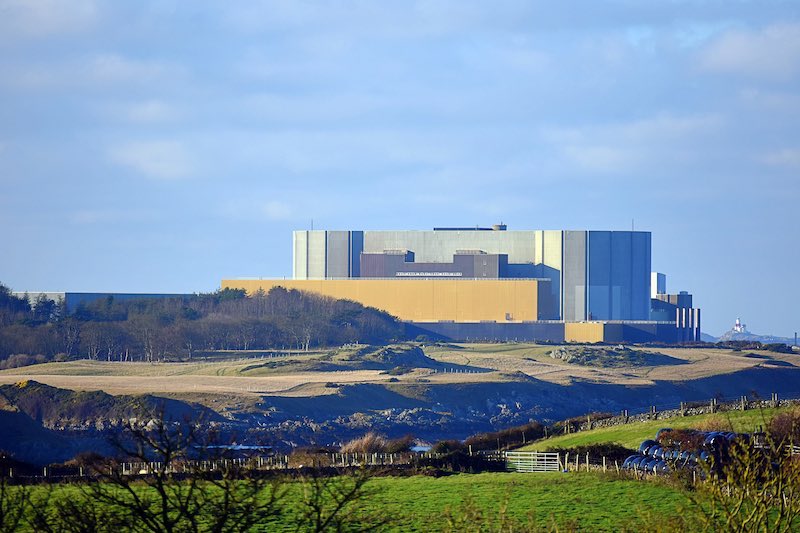Hitachi Scraps Plans for Anglesey Nuclear Power Station

Japanese company Hitachi has officially abandoned plans to construct a nuclear power station on Anglesey, off the coast of north Wales, over lack of government co-investment in the project.
The Tokyo-based multinational shelved the project in January 2019 after disputes over government funding, although the planning process continued. In June the firm said it was hoping to secure additional funding from the UK government to make the project viable.
That funding didn’t materialise and now Hitachi is expected to announce today that the £16 billion Wylfa Newydd project has been permanently binned.
Isle of Anglesey council said that the company confirmed its withdrawal from the project, the biggest energy project ever proposed in Wales, in writing.
Council leader Llinos Medi said: “This is very disappointing, particularly at such a difficult time economically.”
The two-reactor power station was to replace the original Wylfa plant, which went offline in 2015 after 44 years. The new plant was expected to create up to 9,000 jobs during construction and to generate electricity enough electricity to power five million homes for the next 60 years.
The Welsh Affairs Committee described the termination of the project as “a blow for Wales and the UK's ambition to achieve net-zero carbon emissions by 2050.”
Developer Horizon Nuclear, owned by Hitachi, didn’t offer comment. But union leaders were quick to lambast the government for failing to financially support the UK’s struggling nuclear programme, costing jobs and jeopardising climate goals.
Justin Bowden, national officer of the GMB union, said: “This utterly predictable announcement from Hitachi is the outcome of successive government failures to act decisively around new nuclear, and in particular how it is financed. New nuclear is vital in achieving decarbonisation, especially when teamed up with hydrogen.
“It’s no coincidence that around the world – almost without exception – it’s governments who finance these projects, as they are the lender of last resort when it comes to keeping the lights on. The fanciful experiment of trying to get foreign companies or governments to fund our future energy needs leaves most ordinary citizens in this country bewildered.”
The UK currently has seven nuclear power stations, supplying 20% of its electricity, and nuclear power remains critical to the government’s decarbonisation plans. However, all but one of these plants are slated to close by 2030 and the next generation—the eight plants authorised by the government in 2010—have been dogged by funding difficulties, cost overruns, geopolitical tensions and protests from environmental groups.
Ground has broken on just one plant, Hinkley Point C in Somerset, while the final plans have been submitted for Sizewell C in Suffolk.
However, the involvement of China General Nuclear (CGN), as a junior partner with EDF in the Sizewell C project and as the lead developer of a proposed plant in Bradwell, Essex, has been controversial, particularly as relations between China and the West have deteriorated during the coronavirus pandemic.
Another Japanese company, Toshiba, has pulled the plug on a plant in Cumbria, again over lack of financial support from the government.
With the cost of renewable electricity tumbling, campaigners are arguing that nuclear power is no longer economical.
Dr Doug Parr, chief scientist for Greenpeace UK, said: “Nuclear power’s ever-rising costs overtook the ever-falling costs of renewables years ago, and a new reactor now supplies electricity at more than double the price of a new offshore windfarm.
“Propping up this dying industry has become more and more difficult and expensive for the handful of governments still hoping for a nuclear renaissance. We’re hoping the UK government will take Hitachi‘s decision to abandon Wylfa as final confirmation of what the energy market has long been trying to tell them—Britain’s future is renewable.”
Read on our blog

With the government poised to implement tough new measures to...

Budget broadband provider TalkTalk has been notifying customers via email...

A year-long investigation by charity Citizens Advice has revealed a...

Education Secretary Nadhim Zahawi has announced a new commitment to...
